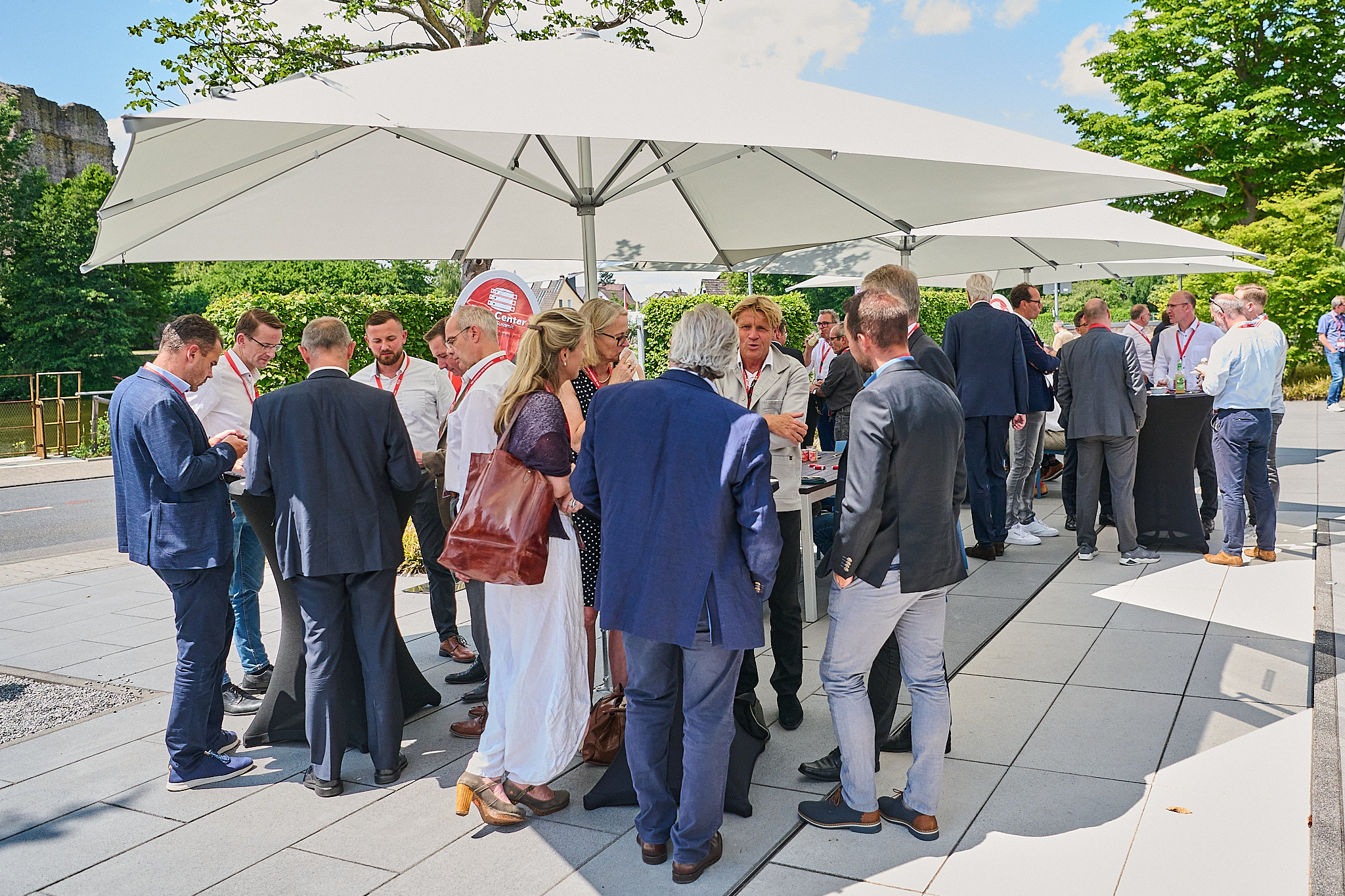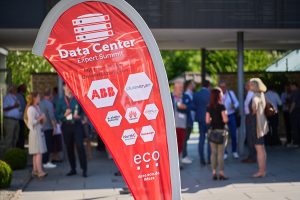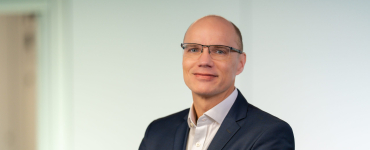Energy transition, regulatory requirements and growing demands from artificial intelligence and digital ecosystems – and all this against the backdrop of skilled shortages. The challenges facing the data centre industry have increased rather than decreased over the past year. The Data Centre Expert Summit 2023 brought the data centre industry together in Dreieich near Frankfurt on 14-15 June. All photos here.
“Without data centres, there is no digitalisation, no cloud and no artificial intelligence. For every industry, and also in our private lives, a growing part of our daily activities depends on the Internet – more specifically, on data centres and other digital infrastructures that bring the Internet to us.” With these words, eco Managing Director Harald A. Summa opened the Data Centre Expert Summit 2023. The demand for data centres is immense and continues to grow, he noted in his keynote. Thousands of data centres are currently waiting to be built and put into operation. But what does that mean for the industry?

Approximately 140 decision-makers, operators, planners, and users from the data centre and server room operations industry convened at The Aircraft at Burghof in Dreieich near Frankfurt for the Data Center Expert Summit 2023. The event featured keynote speeches, panel discussions, and presentations addressing the current challenges faced by the industry. Hessen’s Digital Minister, Prof. Dr. Kristina Sinemus, attended the event as a distinguished political guest.
The event also provided a festive setting for awarding long-standing eco member companies. COLT Technology Services GmbH was awarded for 25 years in the association, while noris network AG, HLkomm Telekommunikations GmbH and Equinix Germany GmbH were awarded for their 20 years involvement. In turn, Centron GmbH was awarded for 15 years in the eco Association.
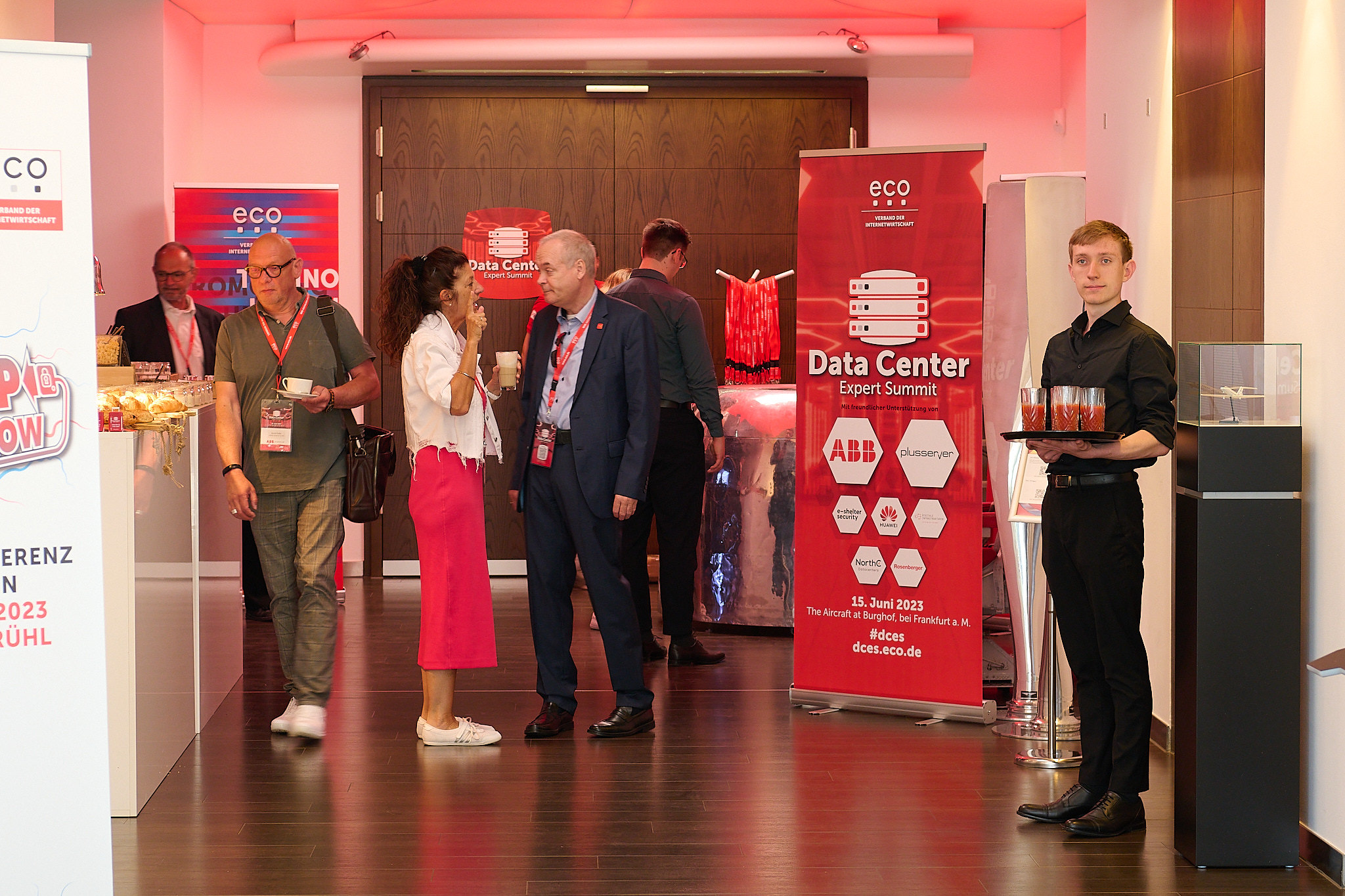
The Sky is the Limit
The evening before, the event kicked off in a summer atmosphere at a beer garden, where Dr. Béla Waldhauser warmly welcomed the guests with a keynote speech. “Due to the high electricity prices, our industry has a vested interest in operating data centres as energy-efficiently as possible. However, the current obligations outlined in the German Energy Efficiency Act regarding the release of waste heat from data centres cannot be implemented in their current form. This situation could potentially result in data centres relocating to neighbouring European countries,” said the Spokesperson for the Alliance for the Strengthening of Digital Infrastructures in Germany, which was founded under the umbrella of the eco Association.
Ulrich Plate from nGENn GmbH then introduced himself to those present as the Head of the new eco Critical infrastructures (abbreviated in German as “KRITIS”) Competence Group. “Many of you will fall under the regulations of the KRITIS Regulation in the future,” Plate pointed out and invited everyone to prepare for this together. Networking and a BBQ with cool drinks were on the agenda for the rest of the evening.
On the event day itself, Béla Waldhauser addressed the topic of energy. “The EnEfG in its current form is not appropriate for practical use. The requirements for the collection of waste heat are unrealistic.” At the same time, he emphasised: digital infrastructures help to save CO2, for example through video conferences and home offices. “The high electricity costs tempt companies to invest in data centres abroad – at the expense of our own digital sovereignty. There is simply data that we would like to keep in our own country,” said Waldhauser.
Karl Kimmig from ABB STOTZ-Kontakt GmbH underlined in his keynote speech that data centres are the heart of the IT infrastructure and are subject to ever-increasing demands. Today, everything is trimmed for maximum performance, yet energy consumption must be reduced to an even lower level. The vision is a highly available data centre in a climate-neutral world. Kimmig explained what ABB can contribute to this issue in the field of electrification and how the company helps customers to reduce emissions. The goal is to achieve a virtually CO2-free
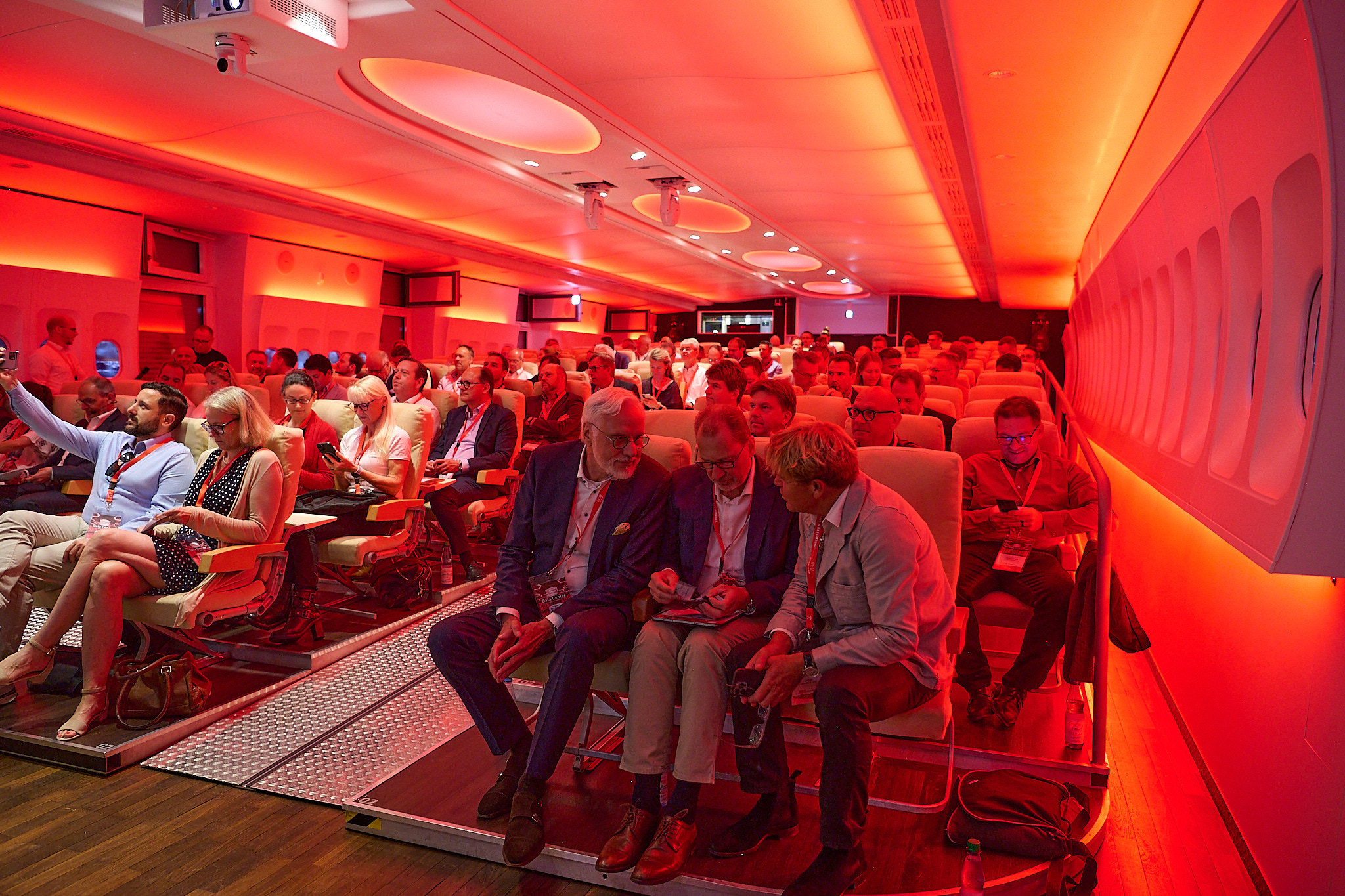
Data centres are the heart of the IT infrastructure
Dr-Ing. Bastian Koller from the High Performance Computing Centre Stuttgart brought the following to the fore: “It needs programmes that are supported by politics to be able to utilise the waste heat.” Mareike Jacobshagen from DE-CIX Group AG added: “Sustainability includes economic efficiency.”
Dr. Harald Will from the Fraunhofer Institute for Building Physics IBP highlighted the role of municipalities: “Cities and municipalities play a major role in this regard, because the conversion of energy systems in terms of a reliable and efficient supply of renewable energies can only be successfully realised at local level.”
What role will AI and automation play in the data centre in the future? This question was posed by Prof. Anne Riechert, AI Frankfurt Rhein-Main e.V., who presented the planned EU regulation on artificial intelligence. Joachim Astel from noris network AG emphasised the benefits of AI and algorithms for improving energy efficiency. While diagnostic possibilities are improving, it is crucial to consider security right from the very beginning. To be able to prevent hackers from using intelligent mechanisms and strong AI for successful attacks, data streams and cloud services must be secured.
Christine Neubauer from Service-Meister then presented AI for the ‘blue-collar’ workers. “AI can simplify repetitive works, as demonstrated by our numerous use cases.” But SMEs in particular still have some catching up to do. Marc Fröse from NorthC Deutschland GmbH elaborated on the topic and explained the advantages of predictive maintenance through AI in the data centre.
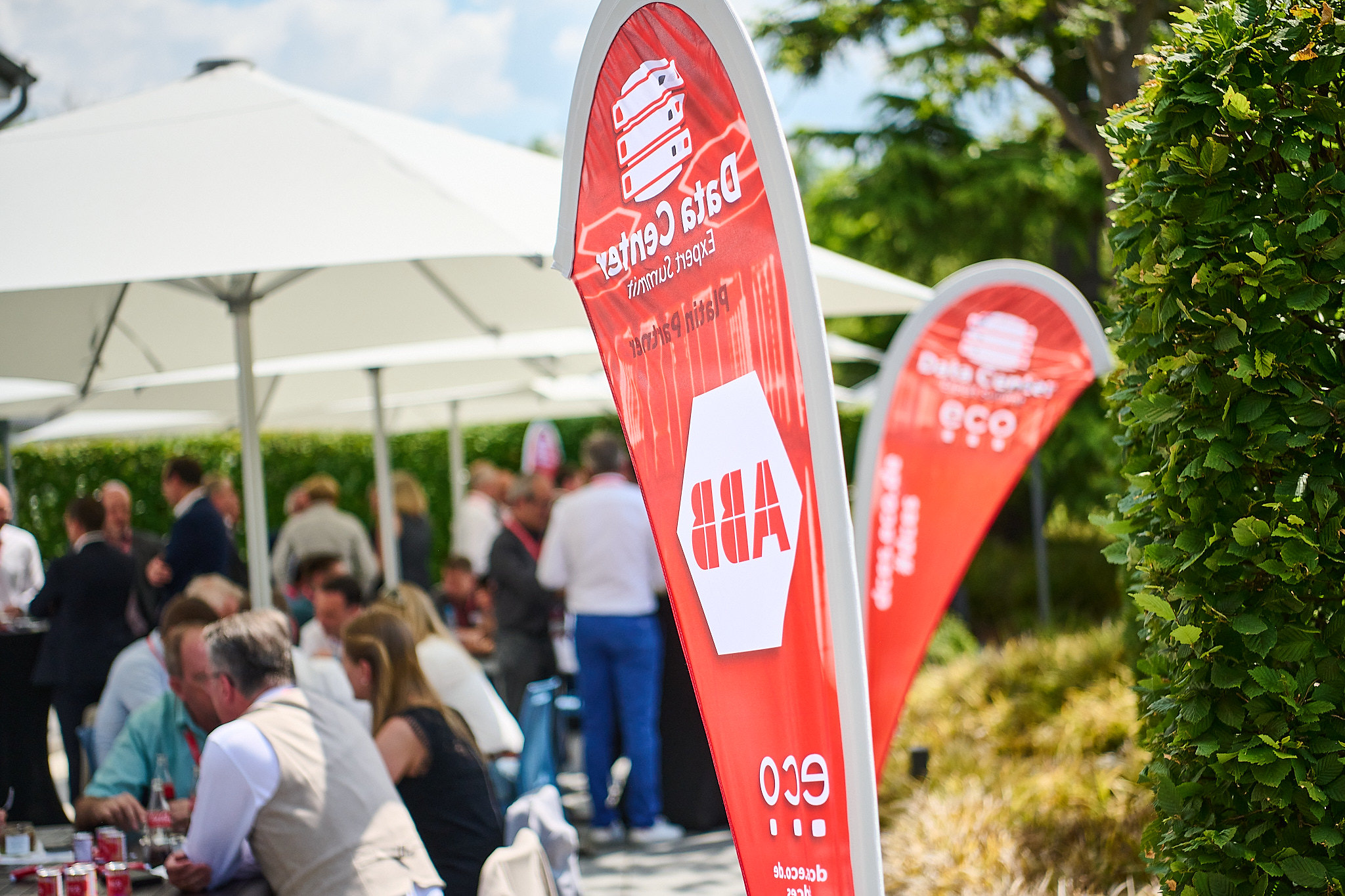
Data centres contribute to digital sovereignty
Jens Möller from e-shelter security services GmbH & Co.KG spoke on the topic of KRITIS. “Many do not yet know that they fall under the KRITIS regulation,” he stated. The current threat situation makes physical security even more important. He highlighted several challenges faced by operators of critical infrastructures, including a shortage of skilled workers, insufficient data availability, and the presence of isolated systems that are not interconnected. “As e-shelter security, we bring together the thematic blocks from fire protection to intrusion protection and video surveillance to access control.” The result is an overarching, AI-supported risk management system that can visualise everything.
After the lunch break, Prof. Kristina Sinemus, Hessian Minister for Digital Strategy and Development, gave a keynote speech. “We can become the Silicon Valley of Europe,” she said and noted the importance of data centres for the region: “The Frankfurt Metropolitan Region has developed into a fast-growing location for data centres. Digital infrastructures and data centres are of great importance for successful, economically viable and sustainable digitalisation. This is of high value for the region, as they contribute to strengthening Hessen as a location, as well as the economy.”
In the following discussion with the Minister, eco Managing Director Alexander Rabe emphasised: “Resilience also means redundancy, which does not always coincide with the sustainability ideas of the German federal government.” Critical applications must be hosted securely. “We aim for digitalisation for people,” Rabe continued. “Digitalisation provides us with a powerful tool to address the significant challenges of the future – we have to do that for future generations.” Christian Schmitz from plusserver GmbH highlighted the importance of OpenSource as the foundation of digital transformation using the Sovereign Cloud Stack as an example. His goal is the largest real Gaia-X implementation with several hundred thousand end users. “We will increase digital sovereignty with the help of Gaia-X,” Schmitz is convinced.
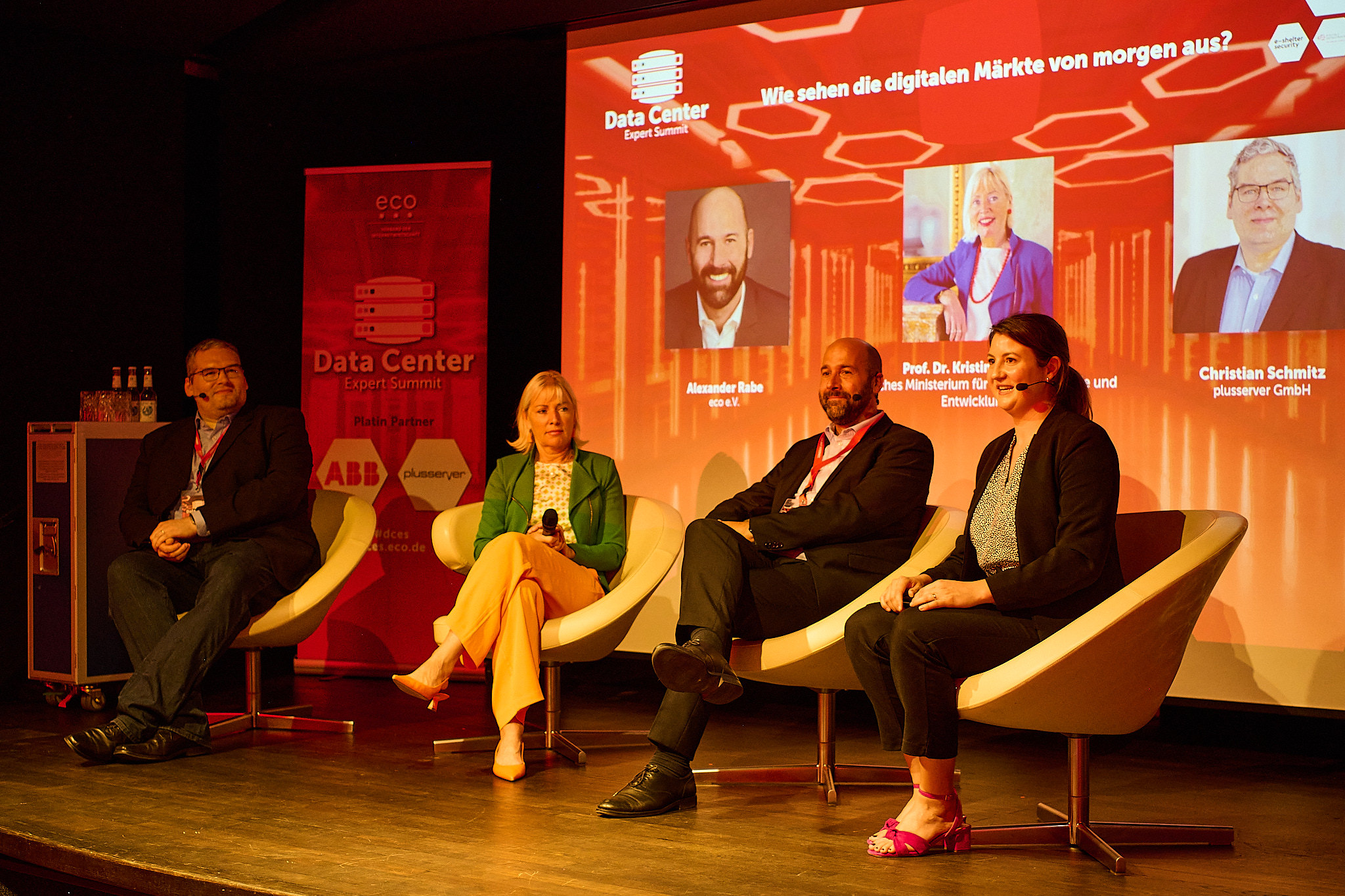
Innovations for the digital ecosystems of tomorrow
Jörg Karpinski from Huawei Technologies Deutschland GmbH engaged in a conversation with Markus Schaffrin and explained why cables are increasingly being replaced by Wifi. The new WiFi generation Wifi 7 will further change cable routes and infrastructures.
What innovations do we need for the digital ecosystems of tomorrow? “The application-oriented use is very important,” said Prof. Sandra Thomas from the Provadis School of International Management and Technology. “Innovation is successful when it is accepted.” Dr. Ralph Hintemann from the Borderstep Institute, Dr. Gunnar Schomaker from the Software Innovation Campus Paderborn and Dr. Christoph Dietzel, DE-CIX Group AG led the final discussion panel of the day.
Marco Bellof from VS Apps GmbH delivered a closing statement on success factors for digital transformation projects including relevant examples. “Allowing new ways of thinking is the decisive key.” All 140 experts left the venue with a wealth of new knowledge, many new contacts, and a vision of how the dynamic industry of data centres can overcome the challenges of the future. We look forward to seeing you again in 2024. Many thanks at this point to all partners and sponsors, especially to ABB STOTZ-KKONTAKT GmbH and plusserver GmbH.
You can see the photos here.
